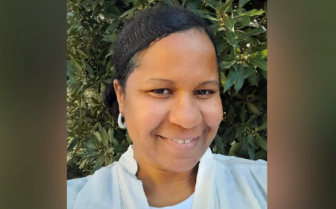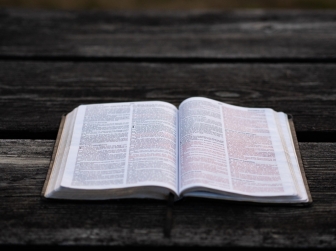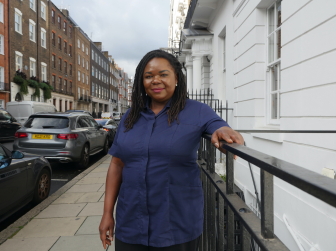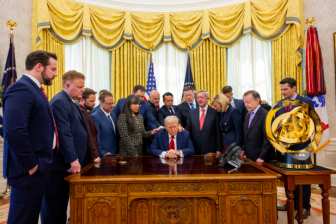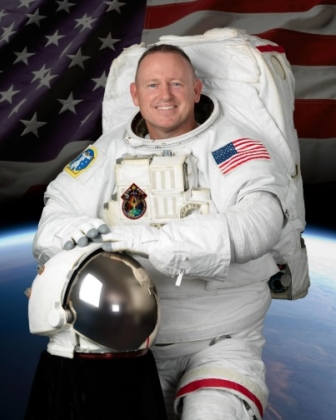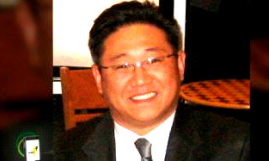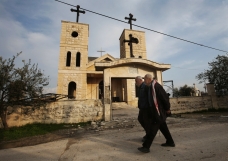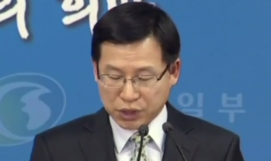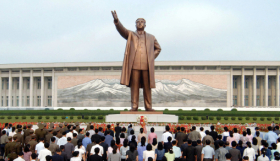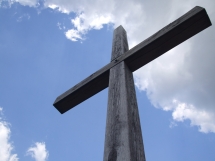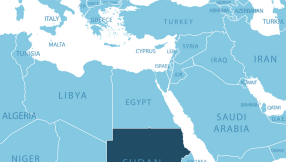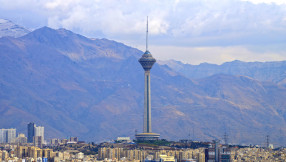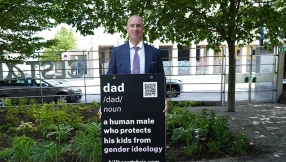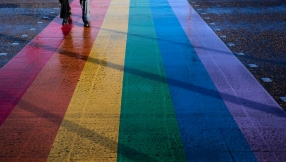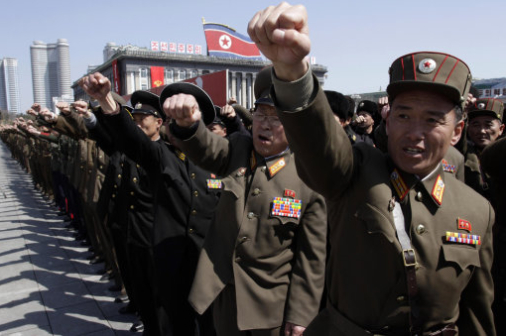
North Korea is widely hailed as the worst country in which to be a Christian. The arrest and detention of missionaries such as Kenneth Bae and John Short, along with reports of gross human rights violations against citizens deemed to be conspiring against the state, has resulted in growing international concern for the small nation led by dictator Kim Jong-Un.
Around a third of North Korea's 100,000-strong Christian population are thought to be labouring in concentration camps, while tens of thousands of citizens, including many who are Christians, have defected to countries such as neighbouring South Korea, China, Mongolia and Russia.
However, Rev Eric Foley, co-founder of Seoul USA, a ministry dedicated to supporting defected and underground Christians in North Korea, says that despite intense persecution, North Korean Christians are remaining steadfast in their faith, and even sharing it with others.
"North Korea is a unique nation in the whole of human history in that it's the only nation ever to be founded on a distortion of the Christian faith," he tells Christian Today.
"That sounds quite provocative, but Kim Il-Sung [the first president of North Korea; Kim Jong-Un's grandfather] grew up in a Christian home and as a result of his exposure to the Christian faith he became convinced that the apparatus of Christian worship – meeting together weekly, complete and total devotion to a divinity, and singing hymnals – could be adapted to a state religion, which in North Korea is known as Juche. It's essentially the worship of the Kim family.
"North Korea is often misunderstood to be an atheistic nation, but it's one of the most religious nations on earth," Foley continues.
"100 per cent of citizens attend mandatory self-criticism services, which are similar to Christian worship services - there are 600 hymnals dedicated to Kim Il-sung, they hear from his writings and about the 10 principles which are an adaptation of the 10 Commandments. These gatherings look so much like our worship services that when we encounter North Koreans and share the Gospel, often their reaction is to say 'Why are you imitating us?'"
Foley explains that Christianity is "a direct challenge to Juche ideology" and if it were to spread, "it would become clear that Juche is a pale imitation of the Christian faith".
Anyone found to be practising the religion is therefore thrown into hard labour camps for the rest of their life, or even killed, and recent cases such as that of American citizen Kenneth Bae, indicate an increasing intolerance towards Christian activity even from outsiders. It is no wonder that North Korea has topped Open Doors' World Watch List for Christian persecution 12 years in a row.
In spite of this, however, Foley insists that Christians, whom he describes as "the most battle-hardened, tested and proven true of any we meet," do not "simply hide out in hopes of a regime change".
"There has always been an underground presence in North Korea...they continue to evangelise and disciple in ways that are distinctive and unique," he says.
"Even in the concentration camps, which are often thought to be places of hopelessness, Christians have for more than a generation been engaging in discipleship and evangelism. They regard it as part of their mission field.
"We always want to emphasise that North Korean Christians are not in retreat, but have continued for more than 60 years to advance the Gospel with great success. It is the indigenous witness of North Koreans within North Korea that is really proving to see change."
Having worked in the field for over a decade, Foley contends that North Korea is not, in fact, the 'worst' place for Christians – at least, not in the way in which we might understand it.
"I think that if people say the 'worst' and mean the costliest, then that's an accurate statement. I've never met a casual Christian in North Korea! But if we mean that it's a place where God's power is least evident, or where Christians feel the most forsaken, then North Korean Christians would deny that adamantly," he explains.
"North Koreans insist that they receive everything they need from God in order to be faithful. So they say: 'Don't pray for us, pray with us. God will find us faith where he calls us, and he will provide'. What a challenge that is for us!"
Given that Christianity directly opposed the North Korean regime by its very nature, Foley suggests that there simply "can't be any easing of conditions" for believers. But, he explains, North Korea cares deeply about its international presence, and responds to public opinion around the world.
The global Christian community must, therefore, advocate on behalf of those in North Korea and demand religious freedom and an end to human rights violations.
"When we look at the countries that geopolitically relate to North Korea – the US, UK, Russia, China and Japan – they continue to see North Korea as a necessary evil. Its collapse would bring a destabilisation of power in East Asia, which is unacceptable to them and Christians are paying the price of that," Foley warns.
"Christians around the world have a responsibility to become more knowledgeable and take their place in public campaigns that are designed to bring the attention of governments around the world.
"Whether or not Christianity will ever be compatible with the North Korean state is doubtful, but if we do nothing we can expect it to get worse."
Clearly passionate about the way God is moving in North Korea, Foley finishes with a story: "In my early meetings with an underground Christian brother, I asked him how we could be praying and he was so surprised by the question. 'You pray for us? We pray for you!' he exclaimed.
"So I explained that we have money and the freedom to do anything, and he said: 'That's the problem. In South Korea and the West, you place so much faith in those things that you don't know what it's like to have nothing.
"'We only have Christ, and we've found him to be sufficient.'"
